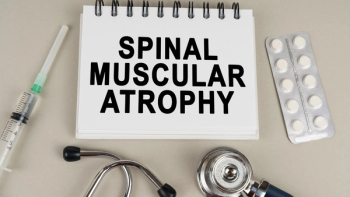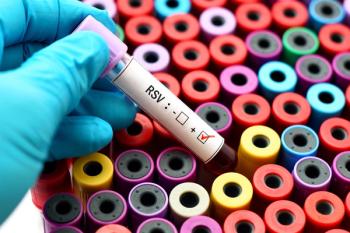
Spinoff seeks to aid pharmaceutical companies in accelerating early clinical development programs.


Spinoff seeks to aid pharmaceutical companies in accelerating early clinical development programs.

In this Pharmaceutical Executive video interview, Marie Teil, Global Head of UCB’s Women of Childbearing Age Program, talks about the program's creation and their most successful strategies for encouraging the inclusion of women of childbearing age in clinical trials.

Despite not having a positive outcome, safety profiles for Keytruda and Lynparza were consistent with previous findings.

In this Pharmaceutical Executive video interview, Murray Aitken, Executive Director of the IQVIA Institute for Human Data Science, discusses why no novel active substances have yet been brought to market through AI technology despite increasing investments in the space for drug discovery as shown in IQVIA's Global Trends in R&D 2024 report.

Although research on cannabinoids is now allowed in a growing number of countries, there are still a number of restrictions and corresponding licenses and permits required to work with these chemicals.

Resubmission plan comes amid feedback and a complete response letter issued by the FDA in 2019 for sotagliflozin in the treatment of glycemic control in type 1 diabetes patients with chronic kidney disease.

In this Pharmaceutical Executive video interview, Murray Aitken, Executive Director of the IQVIA Institute for Human Data Science, discusses findings from IQVIA's Global Trends in R&D 2024 report including the potential benefits and limitations of novel trial designs and decentralized methodologies.

Submission is based on positive results from the company’s Phase III QUASAR clinical trial, in which Tremfya (guselkumab) produced positive results treating moderately to severely active ulcerative colitis.

The trial of a pharmaceutical-grade CBD for social anxiety disorder, which was the first of its kind to be approved by the FDA, is expected to receive top line results next month.

Ricciardi discusses how new treatments require much more specific patient groups in studies.

In this Pharmaceutical Executive video interview, Murray Aitken, Executive Director of the IQVIA Institute for Human Data Science, discusses findings from IQVIA's Global Trends in R&D 2024 report that shows why the US continued to lead in new drug launches in 2023.

First of its kind study reported major improvements in skin clarity and itch relief in over two-thirds of participants.

Relyvrio did not significantly alter amyotrophic lateral sclerosis disease progression as measured by the ALSFRS-R total score at Week 48 compared to placebo.

In this Pharmaceutical Executive video interview, Murray Aitken, Executive Director of the IQVIA Institute for Human Data Science, discusses the biggest challenges facing the broader adoption of novel cell and gene therapies from IQVIA's Global Trends in R&D 2024 report.

Results from Phase IV RESPOND study indicate a significant reduction in plasma neurofilament light chain (NfL) levels.

Agreement to focus on research, option, and licensing for discovery of dual tumor-associated antigen-targeting antibodies.

Novel formulation of cabotegravir (CAB-ULA) allows for dosing intervals of at least four months.

Rus discusses his company’s work with neuroplastogens and how they differ from similar, psychedelic treatments.

In this Pharmaceutical Executive video interview, Murray Aitken, Executive Director of the IQVIA Institute for Human Data Science, discusses findings from IQVIA's Global Trends in R&D 2024 report and what specific factors are causing this slowdown in clinical trial starts.

Teens to be included in both placebo and open label studies for QRX003, a potential treatment for Netherton syndrome.

Phase III DAYBREAK study found consistent safety with Zeposia in patients with relapsing forms of multiple sclerosis.

Simon discusses a recent survey ICON conducted with professionals in obesity-related clinical research.

IDP-023 is a highly potent natural killer cell platform under evaluation for patients with multiple myeloma and non-Hodgkin lymphoma.

Abrysvo was found to produce durable efficacy against respiratory syncytial virus across two seasons in adults 60 years of age and older.

The trial reportedly showcased significant weight reduction in those treated with VK2735, a dual GLP-1/GIP receptor agonist.